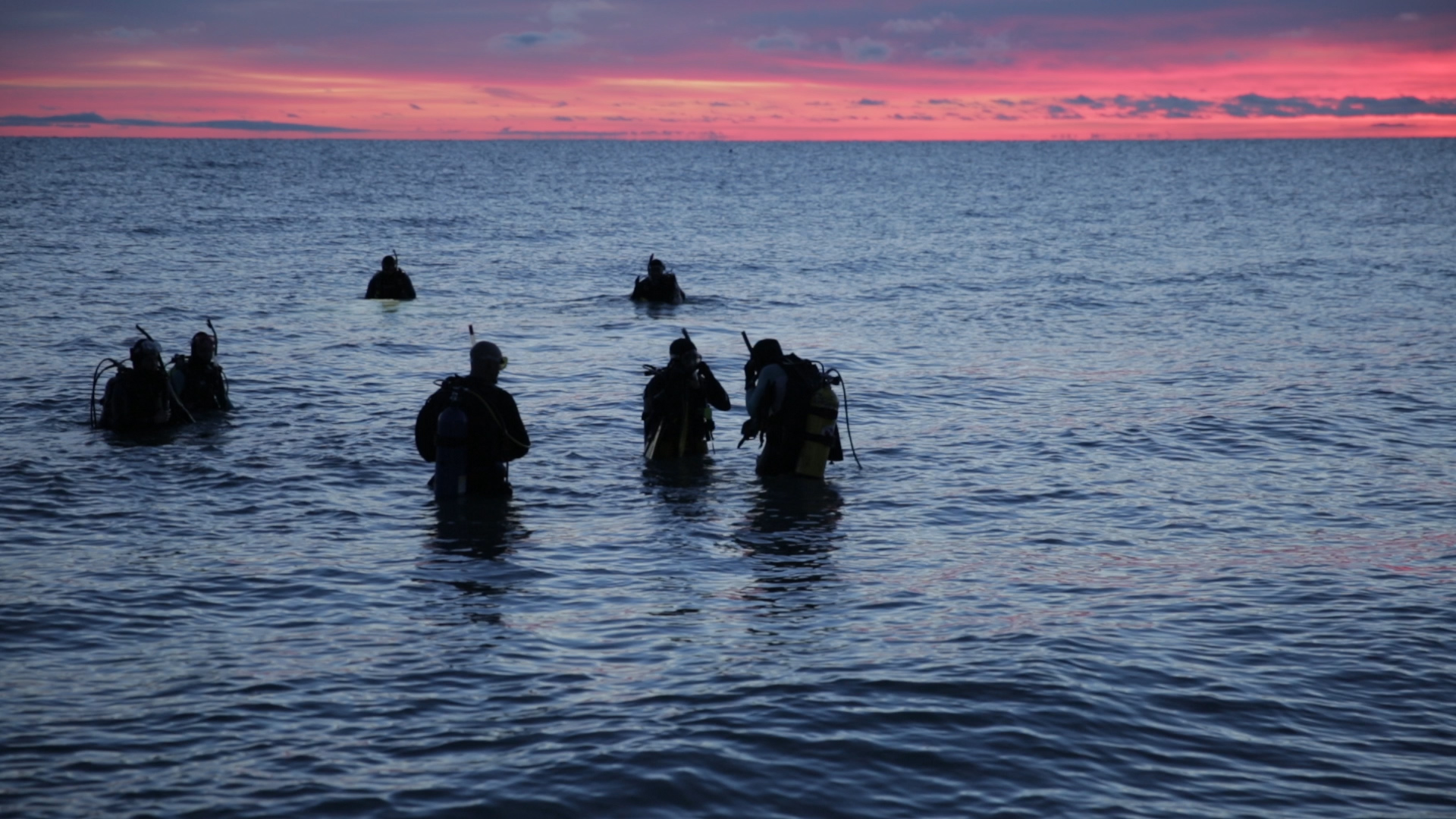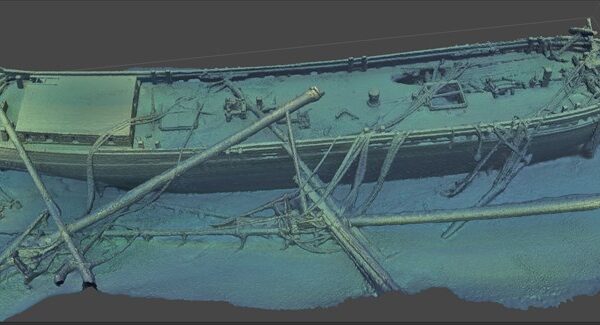
Filmmaker Elizabeth Kaiser is not, actually, a scuba diver herself.
But she was involved in a project inspiring women to pick up the sport.
Her film “Big Five Dive,” about a group of women who dove the five Great Lakes in a 24-hour period, has screened at 17 film festivals, and Kaiser said audience reactions are the same at showings in Montana, Oklahoma, Michigan and Georgia.
“A lot of women came up to us and said, ‘I want to go try this now. Watching these women do it, I think I could do it too,’” Kaiser said. “That alone was worth all the chaos of making the film.”
Watch Great Lakes Now’s segment on the Big Five Dive:
A native of Alpena, Kaiser first earned an associate’s degree in motion picture production at Lansing Community College and transferred to Savanah College of Art and Design in Georgia. After graduation, she and her now-husband, Kyle Maddux-Lawrence, started a production company. As MADLAWMEDIA, they currently produce “a little bit of everything” to pay the bills including documentaries.
Several years ago, through her hometown connections, Kaiser produced a piece for the Thunder Bay National Marine Sanctuary and got to know Stephanie Gandulla, now the acting research coordinator at the Thunder Bay National Marine Sanctuary and a marine archaeologist. A few years later, Kaiser got a call from Gandulla, who said she and some other women had “a crazy idea” – diving all five Great Lakes in 24 hours for the Women’s Dive Day being launched by the diving certification organization, Professional Association of Dive Instructors.
Gandulla and the other divers did what Kaiser called “recon” missions for the dives, but with a limited budget, Kaiser and the rest of the production team did not get a warm up.
“We didn’t see any of the locations until the day of the dive, which added a challenge,” she said.
Shot in 2016, the eventual documentary debuted at the Thunder Bay International Film Festival in 2018. It since has screened at 16 other festivals, and Great Lakes Now broadcast an edited version of it in the eighth episode of its monthly show.
Kaiser spoke with Great Lakes Now about the film, what it took to make it and what she learned along the way. Here’s an edited version of that conversation:
Great Lakes Now: Were you trying to achieve something with the film?
 Elizabeth Kaiser: At the heart of it, we were trying to show women and diving because women are very underrepresented in diving. It’s very rare that women become divemasters or reach any level of authority. I’m not actually a diver, but I’m a filmmaker and I have the exact same situation in the filmmaking world, so I could identify with what they were talking about. I saw the Big Five Dive as being an opportunity where I could identify with another group of women who were kind of going through the same thing as I was in my field.
Elizabeth Kaiser: At the heart of it, we were trying to show women and diving because women are very underrepresented in diving. It’s very rare that women become divemasters or reach any level of authority. I’m not actually a diver, but I’m a filmmaker and I have the exact same situation in the filmmaking world, so I could identify with what they were talking about. I saw the Big Five Dive as being an opportunity where I could identify with another group of women who were kind of going through the same thing as I was in my field.
GLN: Has Big Five Dive led to other projects?
EK: We actually have since then done two more diving films, one called “The Coral Keepers” that just won the jury award at Savannah Film Festival. It’s about a group of girls between 8 and 16 in the Florida Keys who are doing scientific dive training in an after-school program and charting the process of loss of coral in the Keys. They’re already game changers at 12 years old.
The other one that we are in production for right now is about a man who lost his vision due to Type I diabetes and is into black river scuba diving, where visibility is low.
GLN: What is it about the Great Lakes that makes compelling films?
EK: I think that it’s Michigan that makes compelling films. I think Michiganders are very interesting people and I think that they are very driven and so the things that they choose to do make fascinating films because they have so much heart. I’ve lived in Georgia now for 11 years. This is my home, but my heart is always going to be in Michigan.
GLN: As you’ve shown “Big Five Dive” around the country, what’s the knowledge level of audiences about the Great Lakes?
EK: A lot of people I’ve met say “Tell me again where the Great Lakes are” because they’re not familiar with them. And when they first watch the film, they don’t understand the magnitude of what was done, like 1,000 miles of driving in one day on top of the dives. It’s been nice for me to have the opportunity to educate people on where the Great Lakes are and what a feat this was.
Featured Image: Third dive at sunrise, at 40 Mile Point Lighthouse, photo courtesy of Elizabeth Kaiser





